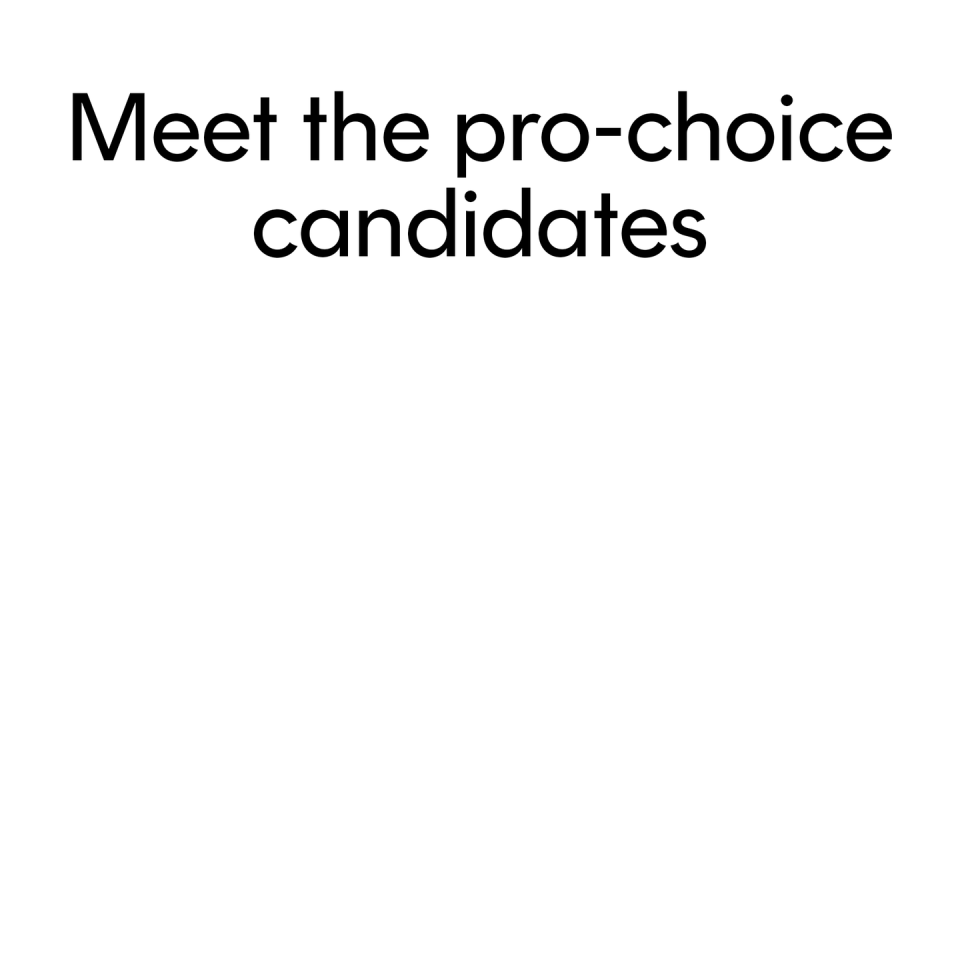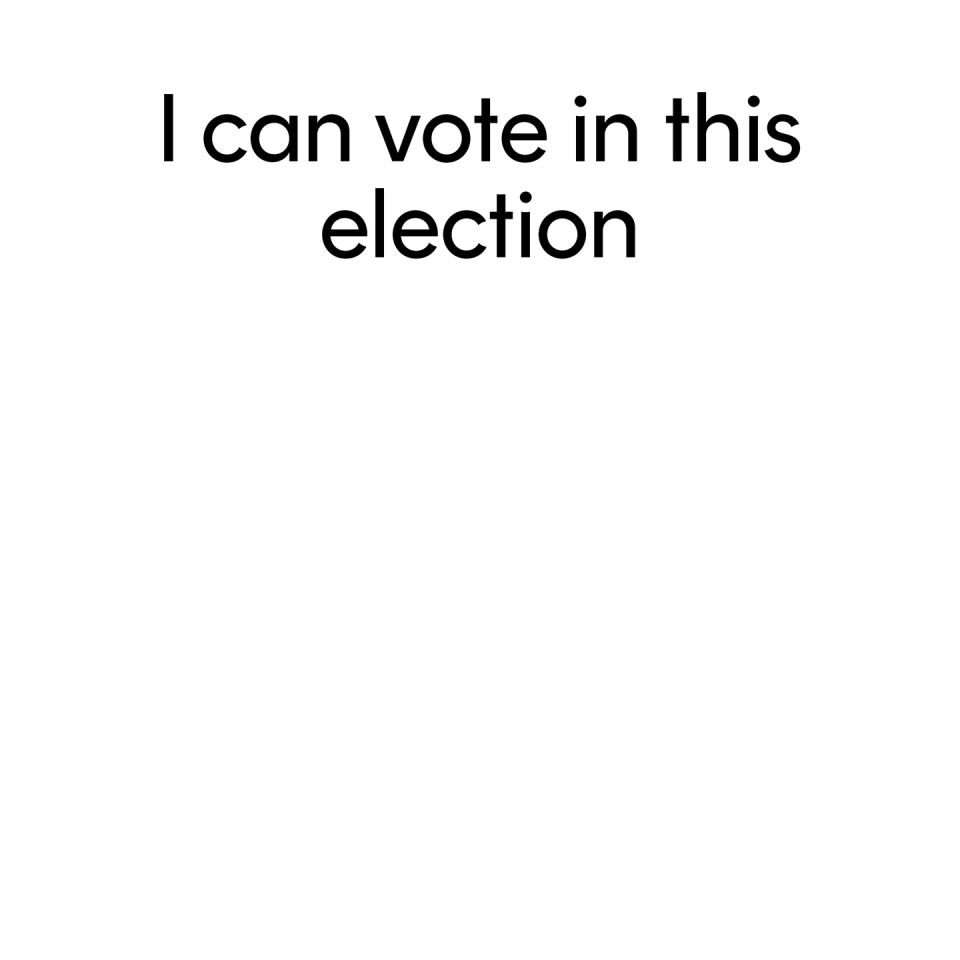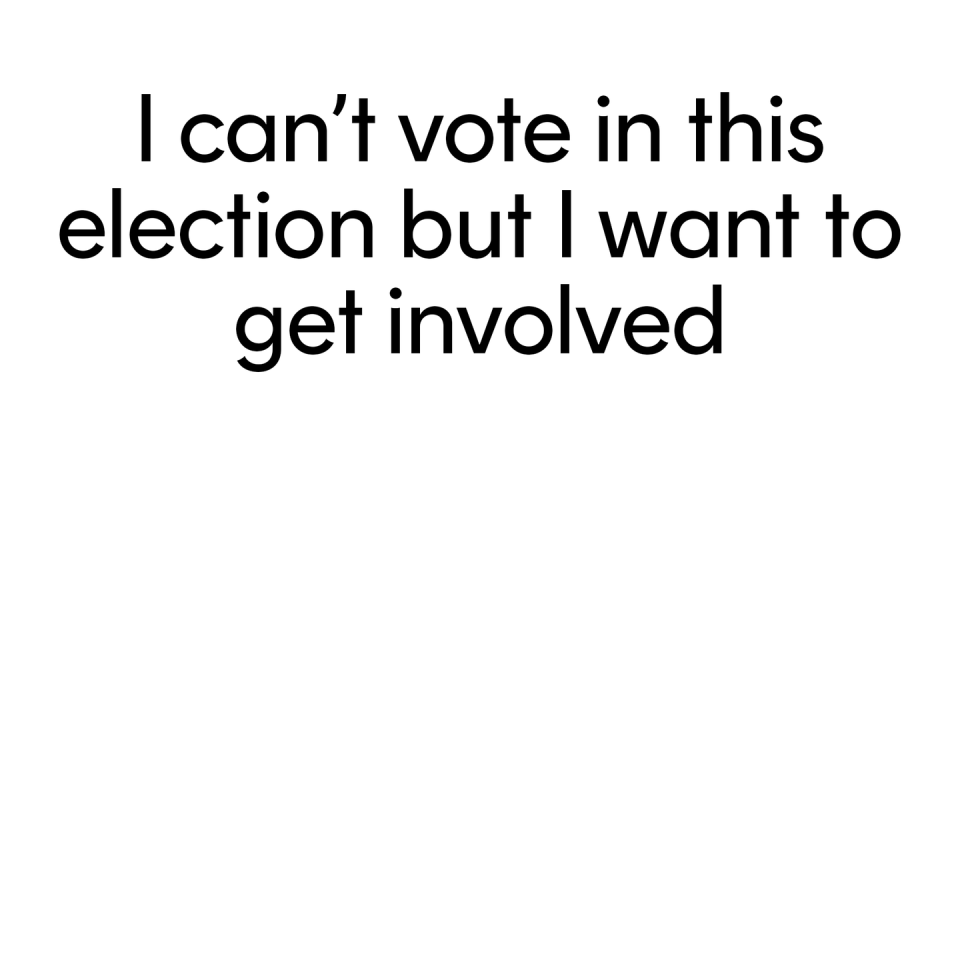The North Carolina Legislator Race Could Gravely Impact Abortion Access Across the Entire South


Right now, North Carolina is considered a critical access point in the South when it comes to reproductive health care. Unlike in many of the neighboring states, abortion—up to 20 weeks—is still legal for North Carolinians and the people who travel there. (It is, however, not the most accessible: There is a mandatory 72-hour waiting period between your first appointment and when an abortion can actually be performed, and medication abortions must be provided in person.) That precious right is hanging on by a thread though, with the state’s Republican state legislative majority holding a big pair of scissors this Election Day.
Stick with me while I quickly run you through the numbers. The Republican party currently has a majority in both chambers of the North Carolina General Assembly: 69 seats in the state House and 28 in the state Senate. But luckily for those of us who believe in the right to choose, the state’s governor is the vocally pro-choice Democrat Roy Cooper, and he has veto power over any legislation that passes through the assembly. Republicans, however, are hoping that this November, they’ll gain even more seats—3 more in the House and 2 in the Senate—thus winning a supermajority, which would allow them to bypass the governor’s veto. Yep, they’d be unstoppable—literally.
And here’s what they’ve already promised to do with that power, should they nab the supermajority: Speaker of the House Tim Moore said that in 2023, once the midterms are settled, the party will introduce a “heartbeat bill,” which typically limits abortions after 6 weeks, before most people know they are pregnant.
Such legislation would be devastating for people not only in North Carolina but also across the entire South: In August, more than 33 percent of abortion patients at NC Planned Parenthood centers traveled from other states, up from 14 percent before the Dobbs decision.
“Right now, people across the South are turning to North Carolina for the compassionate care they’re being denied in their home state,” confirms Jenny Black, president and CEO of Planned Parenthood Votes! South Atlantic. “North Carolina voters must cast their ballots for reproductive champions up and down the ballot if health care providers are going to be able to continue rising to the challenge of this moment, both for North Carolinians and for the many other desperate and deserving patients in need across the South.”
In order to stop Republicans from taking a supermajority in the general assembly, it’s crucial that incumbent Democrats hold on to their seats and that other seats flip to blue. Each North Carolina voter is designated one state House rep and one state Senator, with their district and candidate determined by where they live. Here, we’re focusing on the pro-choice candidates in the state’s tightest races, which happen to be concentrated in the state’s most populous (and/or most affluent) areas: incumbent Sydney Batch, a social worker and family law attorney running for Senate District 17 in the Raleigh suburbs; Marcia Morgan, a teacher and retired Army colonel running for Senate District 7 around city of Wilmington; Christy Clark, a small-business attorney and educator running for the House District 98 in the Charlotte suburbs; and Amy Block DeLoach, a stay-at-home mom who volunteers with organizations dedicated to sexual assault and human trafficking, who is running for the House of Representatives in District 20 in the Wilmington coastal suburbs.


What first made you interested in politics?
I never thought I would be a politician, but I was recruited by two organizations that recruit pro-choice women to run for office. At the time, my children were 5 and 7 years old and I was busy running my own small law firm. After speaking with the organizations about our state government, I realized that as an attorney, social worker, mother of two young children, and person of color, voices like mine and the clients I represent are often ignored when legislation is being passed. So after a lot of consideration, I decided to run for office because I believe an effective government should look like the diverse people that it serves.
What’s a moment from your career thus far that you’re really proud of?
In 2019, Governor Cooper vetoed an anti-abortion bill, and NC legislative Republicans were determined to override his veto. They were so determined that the Speaker of the House, fully aware that I was still recovering from a mastectomy less than two weeks earlier due to my breast cancer diagnosis, called the veto-override vote while I was out on medical leave. He knew that the best opportunity to override the governor’s veto was to call for the vote while I was out. I came to session less than two weeks after my surgery to ensure that anti-abortion legislation would not be passed in our state. I am extremely proud that the bill never became law.
What experiences in your life have shaped your view on reproductive justice?
My mother is an ob-gyn and has been a staunch advocate for women’s rights her entire life. She raised my sisters and me to be strong, independent, and educated women. She also taught us that women’s achievements and contributions to our society are often overlooked due to how success is measured and that to achieve one’s goals, a woman must have bodily autonomy to dictate if, when, and how she becomes a parent. She has been instrumental in assisting women to receive the reproductive health care they need and deserve.
What, if any, abortion law in your state needs to change?
Currently, North Carolina has a 20-week abortion ban with very few exceptions. I believe NC should codify the holdings in Roe v. Wade and Casey v. Planned Parenthood, and I am a cosponsor of a bill that was filed in the NC Senate this year to do just that.
How have you felt about your party’s response to the overturning of Roe?
I believe that the NC Democratic party has been effective in discussing the importance of the Dobbs decision and what it means for abortion access if we return to a GOP supermajority this upcoming election. We openly talk about the fact that, effectively, NC is the last place in the South where abortion access has not been severely restricted and how millions of women must rely on North Carolina Democrats to hold the line and sustain our Democratic governor’s veto on anti-abortion legislation.
What connection, if any, does abortion access have to broader freedoms in the U.S.?
If a woman cannot control her own body, it makes it even more difficult for her to control her own future. Restricting a woman’s bodily autonomy is just one example of how our constitutional rights may be affected based on the U.S. Supreme Court and our state legislatures. Since the Dobbs decision, we have seen states across this country severely restrict abortion access, and we have heard Republican politicians discuss their desire for the U.S. Supreme Court to overturn other laws regarding same-sex marriage, voting rights, and other legislations.
What first made you interested in politics?
After the 2016 election and the feeling of devastation that followed, it became obvious to me that voting wasn’t enough—those who could do more should do more. Although I was happily retired, I felt compelled to return to public service in an attempt to bring sanity, humanity, and common sense back to government and politics. I committed to stepping outside of my comfort zone and running for office, realizing that my experience in public schools and the military would be valuable to the NC General Assembly.
What’s a moment from your career thus far that you’re really proud of?
With an unusual career path before retiring—I was a public school teacher and college professor before spending 25 years in the Army and retiring as a colonel—I’ve had many proud moments in my work life. When I was the first female company commander in the 2nd Infantry Division in Korea, the man I chose to be my senior enlisted person marched into my office and announced, “I ain’t never worked for no female and I ain’t gonna start now.” We worked together for a year, and when I left to take another post, he cried. I was able to prove to him that a woman could do the job just as well as or better than a man—and I know he went on to support other female officers throughout the rest of his career.
What experiences in your life have shaped your view on reproductive justice?
My mother, as a teen, had a very good friend who bled out from an [illegal] abortion. She shared her memory of that experience with me as an example of how fundamental safe, legal abortions are to saving lives—so for me, reproductive justice has never been a question.
What, if any, abortion law in your state needs to change?
Soon after Roe v. Wade was overturned at the federal level, a judge reinstated North Carolina’s ban on abortion after 20 weeks. But the Republican myth of “abortion up to the moment of birth” is just that: a myth. Many fetal anomalies that are incompatible with life cannot be detected until later in pregnancy. Women deserve the right to make choices about their lives and their reproductive health with their families and doctors; legislators do not belong in the exam room.
How have you felt about your party’s response to the overturning of Roe?
Democrats are understandably disheartened by the overturning of Roe v. Wade. With the decision, many states are relegating women to the status of second-class citizens incapable of determining their reproductive futures. Like other Democrats, I vow to fight this assault on women’s rights while simultaneously fighting against the erosion of other individual rights—like LGBTQ rights, voting rights, and rights for minorities.
What connection, if any, does abortion access have to broader freedoms in the U.S.?
Women’s rights are human rights, period. I’m concerned about the increase in political attacks on individual rights—on women, the LGBTQ community, minorities, and others. Like most Americans, I realize that this is a slippery slope. What’s next: banning access to contraception? Striking down same-sex-marriage laws?
What first made you interested in politics?
Following the 2012 mass shooting in Sandy Hook, I got involved in Moms Demand Action as a volunteer leader. At the time, North Carolina had a veto-proof supermajority. We made many trips to the state capitol to visit legislators and fight against dangerous legislation. The first time I walked in, I realized that the general assembly truly is the people’s house. Right then, a seed was planted.
What’s a moment from your career thus far that you’re really proud of?
When I won my first election in 2018, I was part of a group of Democrats that broke the Republican supermajority. The legislature passed an anti-choice bill in my first session, and our governor vetoed the bill. Ultimately, the Republicans brought the bill forward for a veto override. Democrats in the House sustained the veto, much to the surprise of the Republicans. It was the first major piece of vetoed legislation that was sustained since the broken supermajority.
What, if any, abortion law in your state needs to change?
In North Carolina, we have laws that allow health care providers to refuse an abortion. NC also has Targeted Regulations of Abortion Providers (TRAP), forcing health care providers to submit medical records to the state for review, forced waiting periods, and biased counseling requirements. NC also funds “crisis pregnancy centers” with our tax dollars. These facilities are intent on dissuading women from having an abortion and not helping them obtain prenatal care. All of these laws should be repealed.
How have you felt about your party’s response to the overturning of Roe?
The reversal of Roe means that elections are more important than ever. There’s an urgency that must be shared with voters—particularly in North Carolina, where Republicans are working toward a supermajority. We are on the right side of history, but we can always be better at conveying the message that stresses the importance of your vote.
What connection, if any, does abortion access have to broader freedoms in the U.S.?
When rulings are made at the Supreme Court that reverse a 50-year law, it means any right that was conveyed by a SCOTUS decision can be overturned. This includes marriage equality and access to birth control.
What first made you interested in politics?
My grandmother served as our first female mayor pro tem [Editor’s note: This means she was basically deputy mayor and had mayoral authority in the mayor’s absence] of the Wilmington City Council in the early 1960s, and my father served as a state senator in the late 1980s and early 1990s. Politics and community service are very important to my family. My first real involvement in politics was in college, when I worked on a gubernatorial campaign. I’ve always looked at politics as a way to make positive change in my community, and right now, we need someone to fight to protect our rights in Raleigh.
What’s a moment from your career thus far that you’re really proud of?
I was a stay-at-home mom and am thankful for the opportunity to be with my children every day as they grew up. My son was born with a life-threatening brain tumor and had major brain surgery. The day he graduated from college was my proudest moment, thinking about where he started and all that he accomplished. I was also proud to serve on many different boards in our community, from helping victims of trafficking or rape to helping ensure a beautiful local museum for our children. I am also the first female president of my synagogue.
What experiences in your life have shaped your view on reproductive justice?
When my grandmother was born, she did not have access to the ballot box. When my mother was born, contraceptives were difficult, if not illegal, to obtain. When I was born, abortion was illegal, and when my daughter was born, gay marriage was illegal. We have had a slow but steady march forward for the past 100 years—until now. It never occurred to me that women would not have complete autonomy over their own bodies. Starting a family was an exciting but demanding time for me. I couldn’t imagine being forced to give birth when I wasn’t ready. We’ve taken a step back, but this fight is not over. Our mothers and grandmothers fought together to win these rights and now it’s up to us to fight together to win them back.
What, if any, abortion law in your state needs to change?
In North Carolina, it’s less about a law that needs to be changed and more about preserving our governor’s veto power against bad bills that the Republicans are likely to cook up in the next session. I am one of a handful of races across the state that can help ensure that the restrictive laws we’re seeing across the South don’t become the law in North Carolina.
How have you felt about your party’s response to the overturning of Roe?
The North Carolina Democratic Party has said in no uncertain terms that we are opposed to the overturning of Roe. I feel their response has been appropriate, as we should all understand the gravity of that decision.
What connection, if any, does abortion access have to other freedoms in the U.S.?
Abortion rights are inexorably tied to freedom. I am a strong believer in our personal freedoms as Americans, and that’s why I am pro-choice. I also fear that as these rights are stripped away, other important freedoms will also be at risk.



Icon illustrations by John Francis.
You Might Also Like
